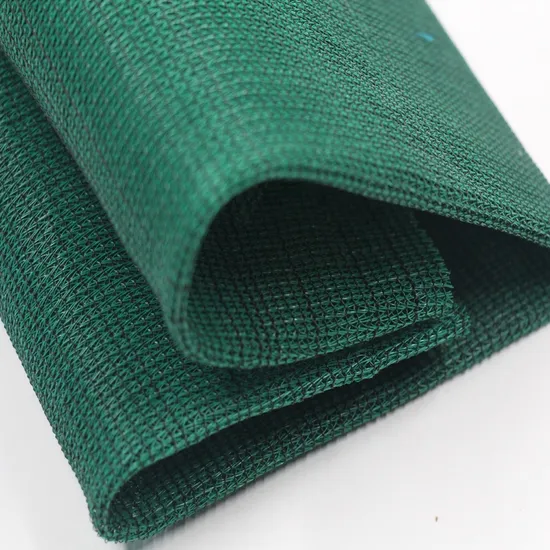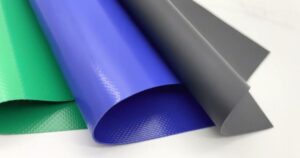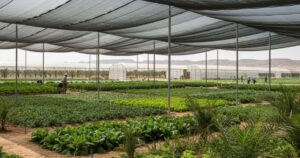In the UAE’s intense sun and dusty climate, not all shade cloths are created equal. While many suppliers offer basic shade netting, Dunet monofilament knitted shade cloth stands out for its strength, breathability, and durability. But what makes it ideal for Dubai’s challenging weather?
In this guide, we explore the material science, common use cases, buyer tips, and common pitfalls.
Why Shade Cloth Material Matters More in Dubai?
Dubai’s climate throws a unique combination of heat, UV radiation, salt-laden coastal air, and high winds at any outdoor infrastructure. Many shade cloths begin to break down within a single season. Monofilament knitted fabrics, especially Dunet, are engineered to last longer under these tough conditions.
The monofilament yarn is round, UV-stabilised, and tightly knitted, unlike tape yarns or woven plastics, which tend to fray, sag, or split. This makes Dunet especially suited for long-term agricultural or construction use in coastal cities like Dubai, Abu Dhabi, and Ajman.
What is Dunet Monofilament Knitted Shade Cloth?
Dunet monofilament knitted shade cloth is specifically designed to provide shading while allowing air circulation and water to penetrate, making it an ideal choice for various applications. This knitted shade cloth is made from high-quality monofilament yarn, ensuring strength and longevity. It is available in two primary shade factors, 73% and 90% making it adaptable for different needs.
Benefits of Using Dunet Monofilament Knitted Shade Cloth
Investing in Dunet monofilament knitted shade cloth comes with numerous benefits.
- Enhanced Durability: The high-quality monofilament yarn used in Dunet shade cloth is designed for longevity. Its resistance to UV rays, tears, and environmental stressors ensures that it will last longer than many other shade cloth options on the market.
- Versatile Applications: Whether you are shielding plants, constructing temporary fencing, or covering construction sites, Dunet monofilament knitted shade cloth is adaptable for various uses. Its availability in different sizes and colours allows for tailored solutions to meet specific project needs.
- Cost-Effective Solution: By investing in durable shade cloth, you can reduce costs associated with crop loss or damage to construction materials. The protective properties of Dunet shade cloth ensure that you maintain the integrity of your investments over time.
- Environmentally Friendly: Dunet monofilament knitted shade cloth is designed with sustainability in mind. Its ability to reduce water evaporation in gardens and protect plants from extreme weather contributes to more efficient resource usage, making it a green choice for eco-conscious consumers.
- Easy to Install: With standard sizes available, Dunet shade cloth can be easily cut to fit your specific requirements. Its lightweight nature also makes it easy to handle during installation, reducing labour time and effort.
Why the Shade Factor isn’t Just a Percentage, It’s a Strategy
You’ve likely seen shade cloths listed with percentages like 50%, 73%, or 90%. But what do those numbers mean for your plants, workers, or materials?
- 73% shade is ideal for nurseries, fencing, and moderate plant protection.
- 90% shade is commonly used where privacy or intense sun protection is needed, like scaffolding, facade screening, or livestock shade areas.
Pro Tip: If you’re unsure which one you need, test a sample during midday sun. The perceived difference is more noticeable than the numbers suggest.
What Makes Dunet Ideal for Long-Term Outdoor Use?
You may have read specs like “500D yarn” or “ISO tensile strength ratings” but here’s what that means in real-life terms:
- Doesn’t sag under tension like cheaper mesh.
- Doesn’t fray at the edges when cut or exposed to wind.
- Maintains colour and performance even after 2+ summers of direct sunlight.
Local UAE contractors report using Dunet monofilament nets for 2–3 years without needing replacement, especially when installed properly and tensioned well at the edges.
How to Choose the Right Shade Cloth for Your Site? (Beyond Specs)
If you’re buying shade netting for the first time, it’s easy to get overwhelmed with numbers. Here’s a simplified decision guide:
| Requirement | Best Shade Option | Why? |
| Privacy barrier around open land or scaffolding | 90% | Maximum blockage, low visibility |
| Greenhouse or nursery | 73% | Light control without choking airflow |
| Car park or pergola | 73% or 90% | Depends on the desired brightness |
| High wind or coastal area | Dunet monofilament only | High tensile strength and UV protection |
Monofilament vs. Other Shade Cloths: What You Need to Know
| Feature | Monofilament (Dunet) | Tape Yarn | Woven Poly Tarps |
| Strength | High | Low–Medium | Medium |
| Breathability | Good | Fair | Poor |
| UV Resistance | Excellent | Medium | Low |
| Aesthetics | Clean finish | Can fray | Industrial look |
| Lifespan in UAE | 3–5 years | 1–2 years | <1 year |
If you’ve used woven tarps before and experienced sagging, splitting, or yellowing, switching to a monofilament fabric like Dunet is a game-changer.
Common Mistakes to Avoid with Shade Cloth Installation
❌ Choosing too high a shade factor for plants that still need light.
❌ Leaving edges unreinforced, always use hemmed edges or fasten with proper cable ties.
❌ Installing with too much slack results in wind damage and flapping.
❌ Assuming all black nets offer UV protection, many low-cost black nets lack stabilisers.
Always ask your supplier about UV stabilisation standards, edge finishing, and fastener compatibility before placing a bulk order.
Real-World Use Case in Dubai
A contractor in Al Quoz needed a reliable fencing solution around a construction plot that could double as a dust barrier. After trying woven mesh (which tore in 3 weeks), they switched to Dunet 90% monofilament netting. Not only did it hold up through a sandstorm, but it also met compliance for site privacy and remained intact for the entire 6-month build.
Final Thoughts: A Smarter Investment for Harsh UAE Environments
Dunet monofilament knitted shade cloth isn’t just a covering, it’s a long-term infrastructure solution. Whether you’re shielding plants, people, or materials, the superior strength and UV resilience make it one of the most dependable options available in the UAE.
At Exclusive Tarps, we help customers in Dubai and across the Emirates select the best shade solutions, whether it’s for construction fencing, agriculture, or commercial setups.
Looking to buy genuine Dunet monofilament shade netting?
Reach out to our team for bulk orders, roll customisation, and same-day delivery across Dubai, Sharjah, and Abu Dhabi.
Frequently Asked Questions
Can monofilament shade cloth reduce sand and dust around my property in Dubai?
Yes. Dunet’s tight-knit monofilament design helps reduce the flow of sand and airborne dust particles, especially in open construction zones or desert-adjacent farms. It acts as both a visual barrier and a physical filter.
How does Dunet monofilament shade cloth perform in coastal areas like Jumeirah or Abu Dhabi Corniche?
Dunet is built to withstand the high salt content and humidity found in coastal air. Its UV-stabilised monofilament yarn resists corrosion, colour fading, and breakdown that typically affects standard woven plastics in salty environments.
Is a Dunet shade net suitable for temporary event setups or exhibitions?
Absolutely. The cloth is lightweight, easy to install, and provides excellent sun protection, making it ideal for pop-up events, outdoor exhibitions, or festival fencing. It’s often used by event planners for both aesthetics and crowd control.
Can I use Dunet shade cloth for a rooftop pergola in a residential villa?
Yes. Many villa owners in areas like Arabian Ranches and Mirdif use Dunet 73% or 90% shade cloth to cover pergolas, parking areas, or garden canopies. Its aesthetic colour options and UV protection make it a durable yet elegant choice.
Is the Dunet shade cloth reusable after dismantling?
Yes, if removed carefully and stored properly. Unlike tape yarn nets that fray or tear during removal, Dunet’s monofilament construction makes it more reusable across seasons or projects. Just make sure to avoid cutting or over-stretching it during disassembly.
Does installing a monofilament net reduce water usage in agriculture?
Yes, especially in nurseries or vegetable farms. By lowering soil evaporation and shielding plants from harsh sunlight, Dunet shade cloth can help retain soil moisture, thereby reducing irrigation cycles in places like Al Ain or Sharjah’s farming zones.
How does Dunet compare to standard green netting sold in local markets?
Standard green nets are often made from cheaper tape yarn, which weakens under UV exposure and wind. Dunet monofilament shade cloth, on the other hand, is thicker, more stable, and built for long-term use in UAE weather. It’s a professional-grade product used in large-scale agricultural and construction projects.




